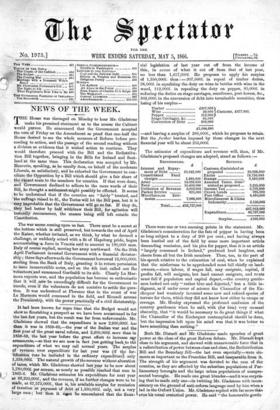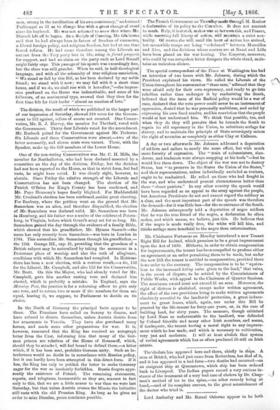Both Mr. Disraeli and Mr. Gladstone made speeches of great
power at the close of the great Reform debate. Mr. Disraeli kept• close to his argument, and showed with unanswerable force that in a redistribution of power between class and class, the Redistribution Bill and the Boundary Bill—the last even especially—were ele- ments as important as the Franchise Bill, and inseparable from it. The strength of his argument was devoted to the case of the counties, as they are affected by the suburban populations of Par- liamentary boroughs and the large urban populations of unrepre- sented boroughs. He made one great blunder—and it was surpris- ing that he made only one—in twitting Mr. Gladstone with incon- sistency on the ground of anti-reform language used by him when a lad in the Oxford Union. Mr. Gladstone replied with far more than even his usual oratorical power. He said " the honourable gentle man, strong in the recollection of his own consistency," understood Parliament so ill as to charge him with a great change of creed since his boyhood. He was not ashamed to avow that where Mr. Disraeli left off he began. Asa disciple of Canning, Mr. (Algona said that he had always been in favour of freedom of comtnerce, a liberal foreign policy, and religious freedom, but had at one time feared refo' rm. He had come therefore among the Liberals an outcast from tin Tory party late in life, suing in formd pauperis for support, and had no claim on the party such as Lord Russell might fairly urge. This passage of his speech was exoeedingly fine,. but the close was still grander. When he said, in half-theological language, and with all the solemnity of true religious conviction, " We stand or fall by this Bill, as has been declared by my noble friend ; we stand with it now ; we may fall with it a short time hence, and if we do, we shall rise with it hereafter,"—the impres- sion produced on the House was indescribable, and some of his followers, of no sentimental type, avowed that 'they then for the first time felt for their leader "almost an emotion of love."































